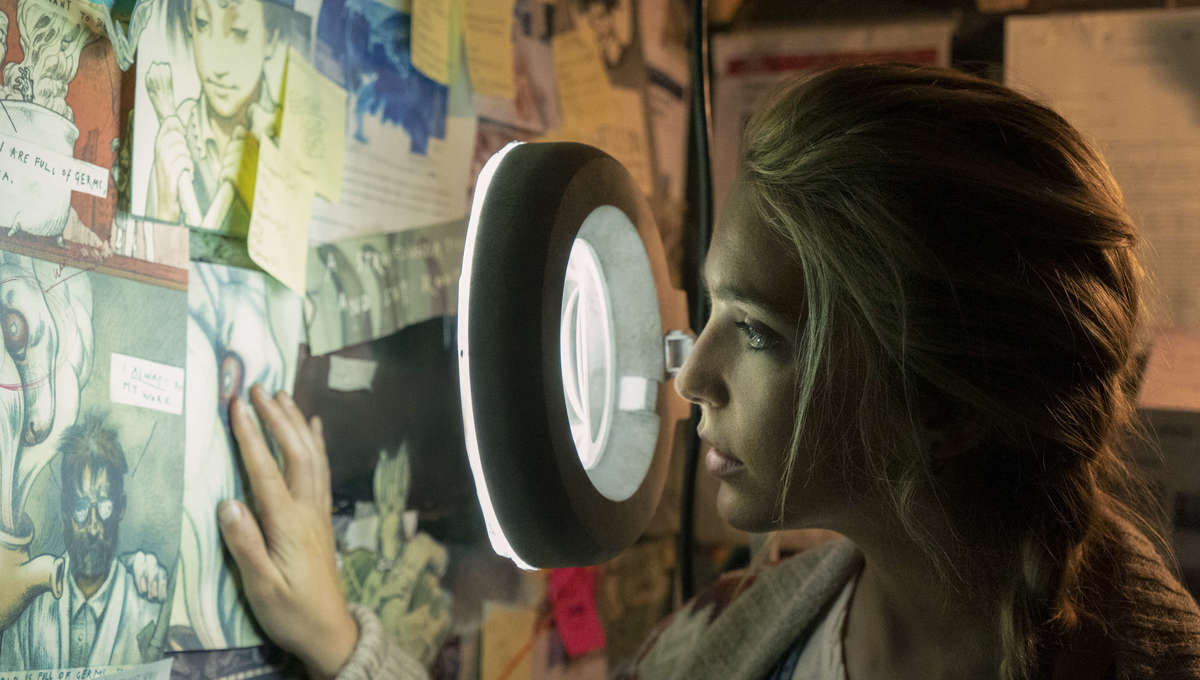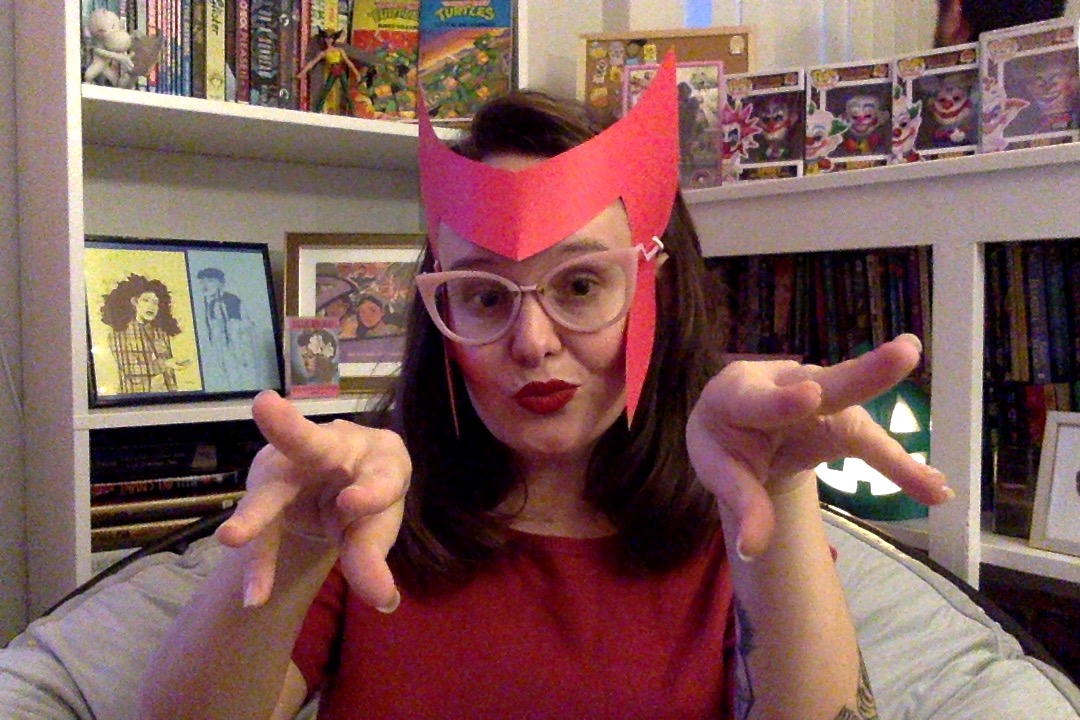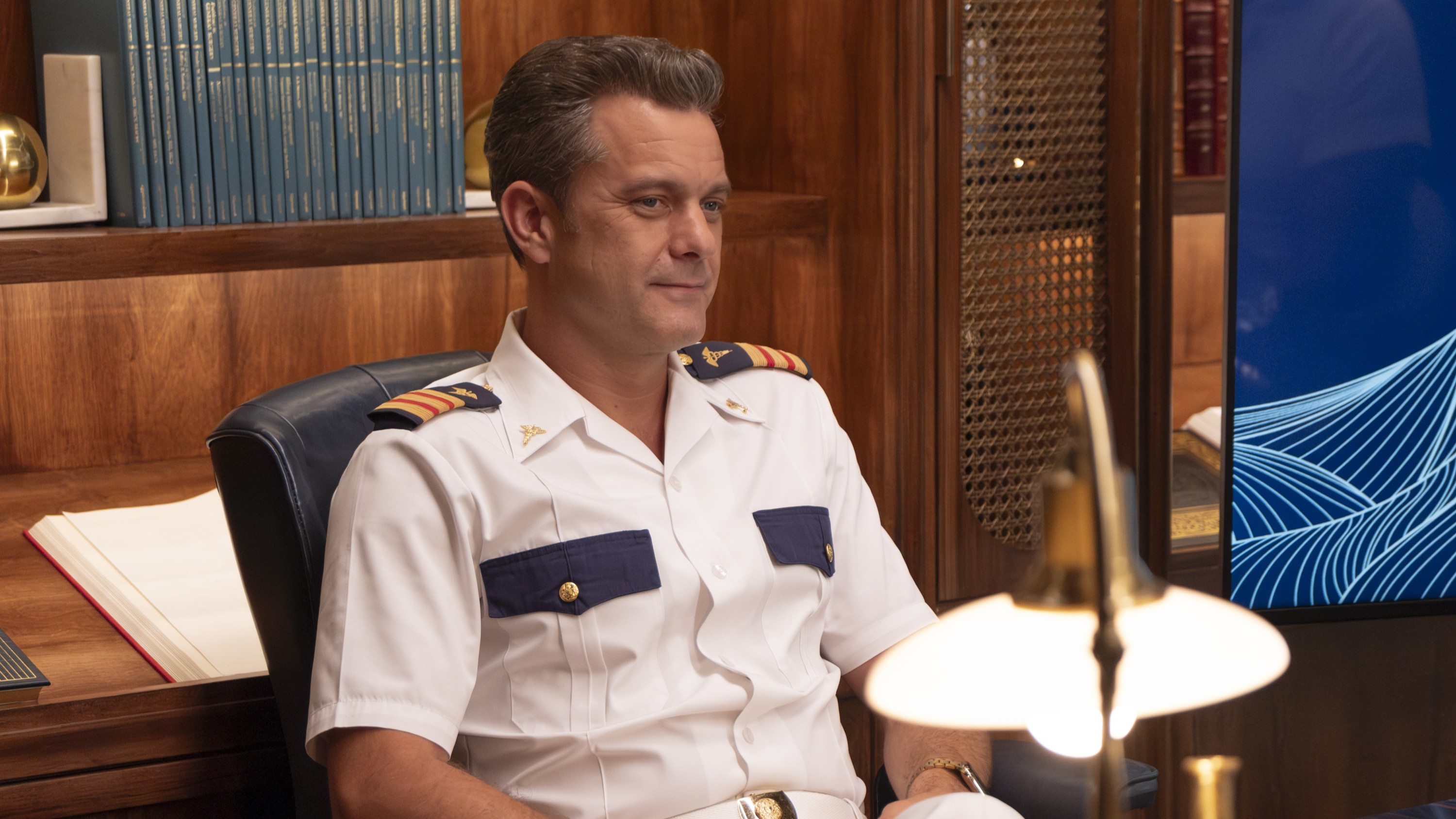What to Watch Verdict
Amazon's remake of Dennis Kelly's surreal British sci-fi drama is hard to swallow.
Pros
- +
💉Sasha Lane kills it.
- +
💉Javon "Wanna" Walton is brilliant.
- +
💉John Cusack is unforgettable.
- +
💉The second episode is a good piece of TV.
Cons
- -
💉Being "timely" doesn't work in its favor.
- -
💉Heavy handed use of conspiracy feels irresponsible.
- -
💉QAnon and anti-vaxxers will love this show.
- -
💉Lacking a unique visual eye.
- -
Inconsistent storytelling
It's hard to remake a cult-classic, but as a creator I can imagine that the desire to try is even harder to resist. And so we come to Amazon's reimagining of Dennis Kelly's stunning 2013 British genre-twister Utopia. The Emmy Award-winning Channel 4 drama told the story of a vast conspiracy linked to a strange comic book called Utopia. Featuring a stellar cast including Neil Maskill (Kill List), Nathan Stewart-Jarrett (Misfits), and Adeel Akhtar (Four Lions), the series was unsettling, stylish, and honestly in this reviewer's opinion one of the best TV series of the past decade. With Gone Girl's Gillian Flynn at the helm, Amazon's remake never reaches the lofty heights of the original, leaning into problematic conspiracy theory territory that feels irresponsible in 2020. The questionable series is buoyed by a killer lead turn from Sasha Lane and a throbbing sense of dread that hints at the power of Kelly's singularly special show.
Lane's joined by John Cusack and Rainn Wilson, the show's biggest names playing warring scientists with their fingers deeply driven into the test tubes and trouble at the center of Utopia. Wilson plays frenetic and desperate well as Dr. Mike, and Cusack is in top form as Kevin Christie, the apparently charitable and kind scientific mind behind the shady Christie Corp.
We spoke with the creator of Utopia as well as some of its stars to try to figure out just what the hell is going on.
🦠 Creator Gillian Flynn: "This show to me is a lot about the choices that we're making as humans right now."
🦠 Rainn Wilson: "The deeper you dive into some of this stuff, it gets really scary, really fast.”
🦠 John Cusack: "There are sinister forces at work."
Utopia has the same core concept and characters as the original, although it changes the setup and, in a very American tradition, makes everything much bigger. Gone are most of the small, intimate, and scary moments traded for something bigger, broader, and generally less effective. Most of this Utopia's power comes from its cast and the fact that the story is terrifyingly timely, featuring a massive pandemic that comes out of nowhere and begins to spread across America with terrible consequences. But here it is directly connected to a nefarious corporation and two genius scientists with battling agendas. The scariest thing about the plotline is not the fact it features a pandemic - which we're all living through - but the fact that certain people in America will likely take Prime Video's Utopia reboot and the timing of its release as some kind of admission of guilt that Coronavirus was in fact created in labs.
That's part of what makes Utopia's conspiracy story so hard to swallow in 2020. Though the heroes of Utopia - Becky (Ashleigh LaThrop), Ian (Dan Byrd), Wilson (Desmin Borges), Sam (Jessica Rothe), Grant (Javon "wanna" Walton) and led by Jessica Hyde (Sasha Lane) - are unravelling a dangerous conspiracy to save the world, our real world and democracy is being devastated by one built on age-old antisemitic tropes, internet trolls, and right-wing fervor. It's often hard to put that juxtaposition of real life danger and fictional heroism aside as the show moves closer to its biggest reveals. However, If you can get over the idea of conspiracy theorists saving the world, you might find something to savor in the sci-fi story that is grounded by the utterly human journey of Jessica Hyde.
It's that journey that elevates Utopia, and it's the one place that Flynn truly improves on the original. While I am a diehard fan of Kelly's atmosphere piece, in that Jessica Hyde was just a piece of the wider puzzle of Utopia, an ensemble player wrapped in a puzzle box who often felt like a one-note "bad girl" action hero. But Lane and Flynn's Hyde is a complex anti-heroine with heart. It's unsurprising that Flynn did such a brilliant job crafting a gnarly, smart, scary, and complex protagonist as it is at the core of what she does so well. Luckily for Flynn and this Utopia, the writer shoves that skill to the forefront, carving a Jessica Hyde-shaped scar through the center of the story, making Utopia Jessica's rather than her simply existing within it.
Jessica's cohorts are a mixed bag. Walton is brilliant as Grant. Young, angry, and full of fire, he's easily the show's secret weapon as he plays off Lane perfectly and offers up an in-character for everyone who has ever felt like they're up against the world. LaThrop is great as Becky, though she's given very little to work with here, mostly relegated to love interest for Byrd's Ian. That latter character was the roughest translation here as Nathan Stewart-Jarrett added such a dynamic cynicism and humanity to the role; Ian here feels like an empty shell of a "good guy." Borges is wonderful as Wilson, but it is a performance so wholly based from aesthetic to mood on the one originated by Adeel Akhtar that it's almost jarring to watch. Rothe is very Rothe-y as Sam, but her "cool girl" writing got under my skin as she ragged on people for their passions.
Sadly, the rest of the show feels just as muddied and messy. During the recent TCA panel for the series, Flynn stated that the show would take a "less is more" approach to the unusual and stylized violence that was so key to the original. But there are two spree killings in the first four episodes and the show is violent just in a way that feels far less meaningful or satirical than its predecessor. At almost every point the series seems scared to commit to the thoughtful darkness and unsettling strangeness that made the original so unique and powerful. Instead, Flynn's story goes for "realism" which in 2020 makes the series feel dangerous in a much more direct way. Without getting too into spoiler territory, this is a series that seems to play into both QAnon and anti-vaxxer conspiracy theories. Though QAnon is more recent, the reality is that by the time Utopia was in production it was a widely known about conspiracy so it seems unlikely either theory was something the team were blindsided by, and couldn't have considered or tried to account for.
It's not that these threads weren't there in the original, but the show came out in 2013 and was so surreal, strange, and stylized that it felt more like a part of the puzzle of the show rather than its driving force. Here, saving the day from an evil scientist and a potentially dangerous vaccine is the core journey our team goes on with the mystery of Utopia itself often left in the dust. As the series does what American reboots want to do and expands the mythology, lore, and conspiracy at a vast rate, it becomes more confused and less effective. It is also hard to watch without thinking about the autistic people who have been fighting against the lies of anti-vaxxers for years, the advocates who have had to fight for their own humanity when celebrities claim that vaccines are the reason for their existence. Though it's not as if conspiracy stories are new and this is a remake, this Utopia feels mistimed at best and honestly irresponsible at worst.
TV shows shouldn't be made with the fear that they might end up as fodder for 8chan conspiracy trolls. But Utopia doesn't seem to realize that there is a difference between reflecting the world we live in and making a series that plays into the worst of humanity in 2020.
No one could have known that there would be a global pandemic this year--though it does seem to this reviewer like the show may have done ADR work in post to play into the current crisis--but no matter how you cut it Utopia comes at a terrible time with a message that can only really be read one way: conspiracy theorists will save the world from shadowy scientists and their evil vaccines. Maybe there's a way this version of the show could have been subversive, necessary, and vital, but it ultimately refuses to commit to introspection or conversation around the tropes it plays with and dangerous suspicions it may inadvertently confirm.
It should be noted that this review was written based on the first seven episodes of Utopia, with the finale withheld from reviewers. Maybe these critiques will all be upended with a subversive take that will make me eat my words and wish I had the chance to rewrite this. Or perhaps it will feature the same massive late-stage twists as the original and Prime Video is just trying to protect them.
Utopia hits Prime Video on Sept 25th.
Rosie Knight is an Eisner-winning journalist and author who's been writing professionally since 2005. Her career has taken her around the world and, although she hails from London, she currently resides in Los Angeles where she writes full time. She began as a professional poet but transitioned into journalism, starting at the Eisner-winning WWAC in 2016. Since then she has written over 1500 articles for digital media sites including What to Watch, Nerdist, IGN, The Hollywood Reporter, Esquire, Den of Geek, DC Comics, /Film, BuzzFeed, and Refinery29. She also writes comics including The Haunted High Tops and Cougar and Cub. When she's not writing she spends far too much time watching horror movies and Hallmark films.












